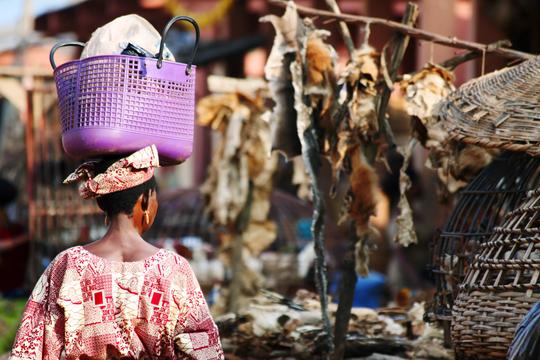
Dig deeper into culture-packed West Africa
The vibrant nations of Benin, Ghana, and Togo are an enriching trio — find out how to immerse yourself in their very best places to visit
Tucked in between Ghana and Benin, Togo is a small but captivating place that offers a unique blend of natural beauty, vibrant culture, and history. From the frenetic markets of Lomé, the capital, to the serene, palm-fringed beaches along the Gulf of Guinea, Togo’s charm lies in its variety. Plus, you can get insight into the local voodoo (or vodun) culture by heading to the Akodessawa Fetish Market full to the brim of intriguing artifacts.
Visa requirements may change, so for the most up-to-date information we recommend using our Entry Requirements tool. Or, check the Togo embassy website in your country of departure.
Recommended vaccinations for Togo include hepatitis A, hepatitis B, tetanus, typhoid, cholera, polio, rabies, meningitis, and yellow fever. However, as advice often changes, you can check out our Entry Requirements tool for the most up-to-date details on vaccination requirements.
Togo's climate varies from tropical in the south to savanna in the north. The southern part of the country experiences humid conditions with an average annual temperature around 27°C (81°F), while the north sees temperatures ranging from 17 to 41°C (63 to 106°F). Rainfall in the south occurs in two seasons: mid-March to late July and early September to mid-November. The capital, Lomé, has average daily temperatures ranging from 26°C (79°F) in August to 29.5°C (85°F) in March. The wettest months are May and June.
The best time to visit Togo is typically during the dry season, from November to February. Temperatures are more comfortable, with less humidity and rainfall. March to May can be extremely hot, while the rainy season from June to September brings heavy rainfall, particularly in the south.
Tipping in Togo is not strictly required but is appreciated for good service, especially in hotels, restaurants, and for guides. A tip of 5 to 10% is a good general guideline.
Tipping your G Adventures CEO is also appreciated. The amount is entirely a personal preference, but as a guideline, USD$ 20-30 per person per week is recommended. Any additional amount for exceptional service is always welcome.
Internet access in Togo has improved in recent years but can still be inconsistent, especially outside major cities. In urban areas like Lomé, Wi-Fi is common in hotels, cafes, and restaurants, but speeds may vary. Expect less reliable internet in rural areas.
Yes, ATMs are widely available in major cities like Lomé and Kara. Many accept international cards like Visa and Mastercard, though American Express and other cards may not be widely accepted. Carry cash when travelling to rural areas, as ATMs may not be available.
Togo's attitudes towards LGBTQ+ individuals are conservative, and public displays of same-sex affection can attract negative attention. Discretion is advised. G Adventures is committed to LGBTQ+ inclusion; find out more via our LGBTQ+ travel page.
The official language of Togo is French. Major local languages include Ewe, Kabiye, Tem, and Mina. Most people speak French along with their ethnic languages.
No, tap water in Togo is generally not safe to drink due to potential contamination. Stick to bottled water, which is cheap and widely available. Drinks provided on our tours and in hotels/restaurants are safe.
Togo is generally safe, especially in major cities like Lomé. However, petty crime such as pickpocketing can occur. Be cautious while driving, and take precautions against malaria. G Adventures prioritizes safety; find out more via our Travel Safety page.